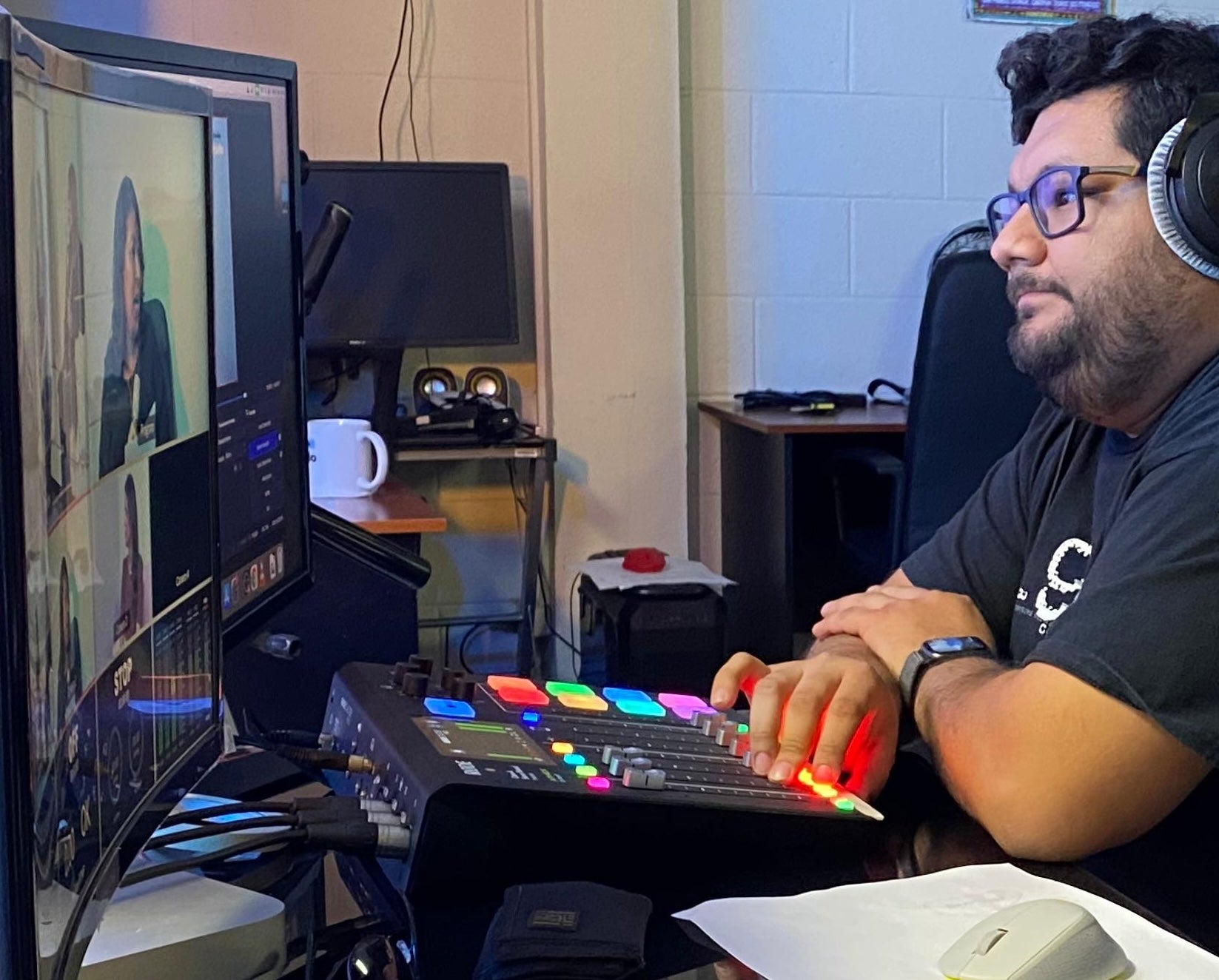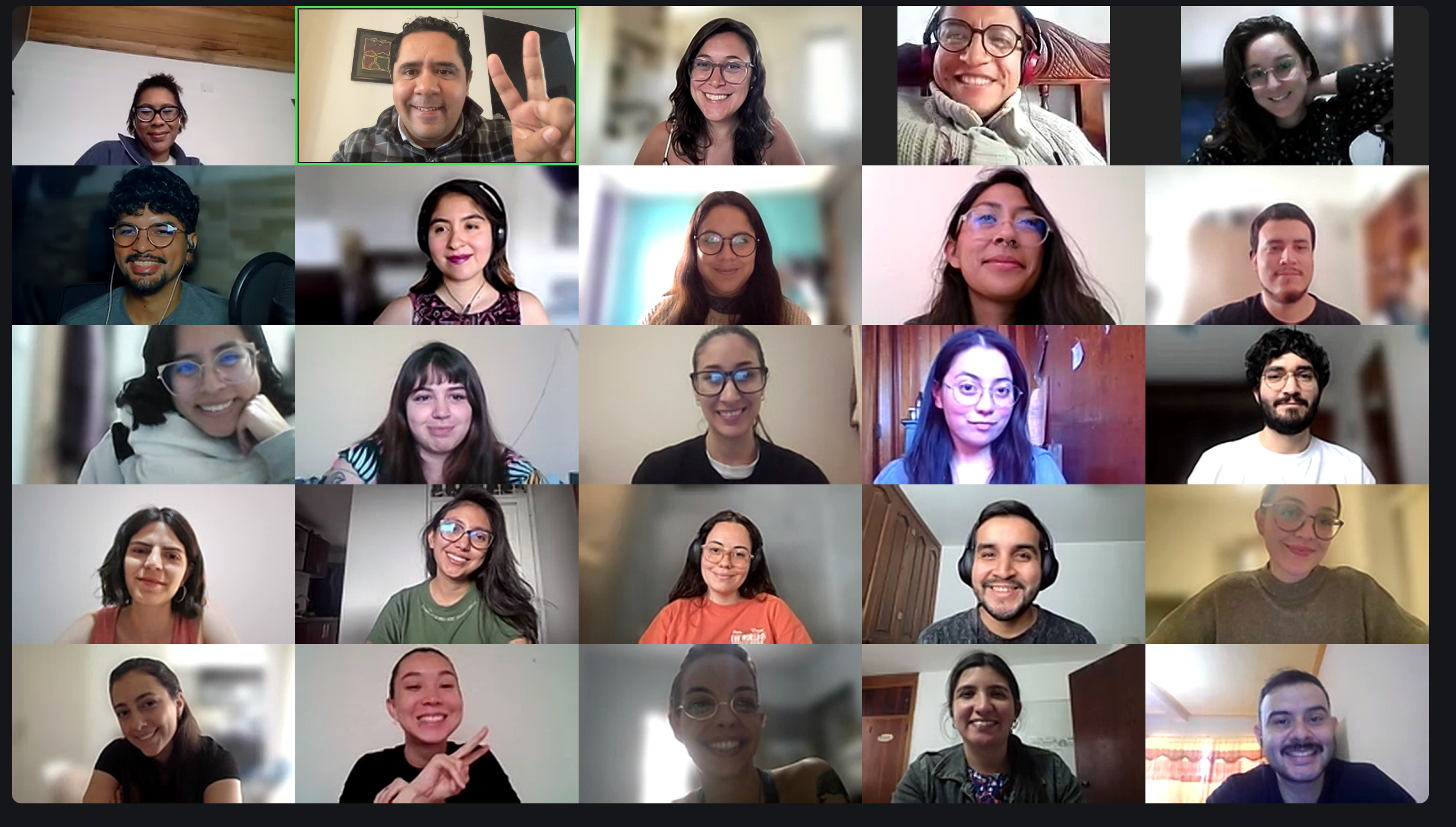When El Toque, an independent outlet that serves Cubans from exile, lost significant support after the suspension of U.S. international cooperation in January, its leaders launched an effort to diversify revenue sources.
They increased advertising sales, secured new funders, and sped up the development of paid products, according to editor-in-chief José Jasán Nieves.
And in March, they received news that the lost support would be restored. The National Endowment for Democracy (NED), a foundation funded by the U.S. Congress, announced that following a lawsuit it would be able to resume disbursing grants, including to El Toque and other independent Latin American media whose sustainability had been left in limbo.
But according to Nieves, challenges remain.
“In three months it’s not possible to change a business model,” Nieves told LatAm Journalism Review (LJR). “We still can’t say we’re safe from a new interruption like the one in January affecting us badly, but we’ve taken steps to avoid it.”
Dozens of media outlets across Latin America continue working to depend less on organizational funding. Some have found strengths they are managing to translate into income, while others are encountering new factors threatening their long-term sustainability.
The Salvadoran investigative digital news outlet Gato Encerrado has been operating on a “very limited” budget, according to director and founder Ezequiel Barrera. The outlet has had to permanently cancel projects that relied on implementer organizations that failed to regain access to U.S. support.

The director and founder of Gato Encerrado, Ezequiel Barrera, said that the newsroom is preparing for the possible effects of a new restrictive law in El Salvador. (Photo: Courtesy of Gato Encerrado)
That is why the news of the reactivation of NED grants was a breath of fresh air for Gato Encerrado. Barrera said at least 30 percent of the outlet’s budget depended on one of those grants.
“It’s the only grant that survived,” Barrera told LJR. “Several projects, like some national reality analysis podcasts and some sections, depended on that grant. It definitely helps a lot.”
But the relief did not last long. NED’s financial support to Gato Encerrado and several other Salvadoran media outlets is again in jeopardy following the recent passage of the Foreign Agents Law in El Salvador, also known as the “Gag Law,” which imposes a 30 percent tax on foreign donors’ transactions to organizations in the country.
The law also requires individuals and organizations receiving foreign funds to register in a Foreign Agents Registry, which will go into effect 90 days after the law goes into effect.
Due to its nature as a foreign entity funding local organizations, NED may be required to register as a foreign agent under the new Salvadoran law.
“Some of our donors, like NED, have already told us: ‘We’re not going to register,’” said Barrera. “The people from the Ford Foundation, who also support us a lot, aren’t willing to register as foreign agents either.”
The only option left for Gato Encerrado to continue receiving foreign funding is to follow in the footsteps of outlets like El Faro, which relocated their legal and administrative offices from El Salvador to neighboring Costa Rica. They’ve already begun preparing for that process, Barrera said.
“We’re going through this process that we hope will be completed by July at the latest,” he said. “We believe that’s still a good timeframe before the 90 days are up and registration formally begins.”
Barrera said moving their administrative operations out of El Salvador presents new challenges for sustainability. One of them is figuring out how to pay their team in El Salvador from abroad.
Another potential challenge, he said, is that from outside the country it will be harder to close contracts for Agemedia, the communications consultancy Gato Encerrado created to generate revenue. Many of the agency’s clients are also independent organizations that receive foreign funding.
Because of that, Barrera said he is aware that international grants will initially be the only viable source of funding once Gato Encerrado begins operating from Costa Rica. For this reason, he said, they are considering putting up a paywall on their website and opening up advertising space. However, they know that under an authoritarian regime, these options also have a low chance of success.
“The government itself has worked hard to discredit us to the point that probably some people who want to support us won’t, because they’ll think it could create problems for them with the government,” said Barrera. “A business that wants to advertise with us will be afraid to appear on our site, because the government could take it as an act of hostility.”
The loss of grants was a severe blow to the regional journalism platform Factual, based in Mexico City. One of the suspended funds allowed the organization to maintain the Red LATAM de Jóvenes Periodistas (LATAM Network of Young Journalists)—one of its flagship programs—and cover the salaries of half its eight-person operational team.
“At one point between February and March we thought we might have to shut down,” Factual co-director and co-founder Jordy Meléndez told LJR.
But when the outlook seemed darkest, the organization managed to launch a new project and expand an existing one.

The LATAM Network of Young Journalists, a flagship project of Factual, was at risk of disappearing after the suspension of international grants. (Photo: Courtesy of Factual)
In May, the organization launched “Futuro en Construcción” (Future Under Construction), an initiative in partnership with the World Bank to train journalists from Latin America and the Caribbean on youth employability, job inclusion, and labor market transformations. The program includes $1,000 U.S. scholarships for producing journalistic stories.
Additionally, Meléndez said Factual renewed its partnership with the Google News Initiative to continue the Red de Capacitadores en Herramientas Digitales (Digital Tools Training Network), an initiative that has trained more than 6,000 people across Mexico since 2022 in using Google tools for journalism.
Contributions from the World Bank and Google News Initiative represent 80 percent of Factual’s current budget, according to Meléndez.
But the alliance also strengthened Factual’s expansion into Central America and the Caribbean through the new Red Centroamericana de Capacitadores en Herramientas Digitales (Central American Network of Trainers in Digital Tools), which aims to bring in-person training to Guatemala, El Salvador, Honduras, Costa Rica, Panama and the Dominican Republic, and online training to journalists in Nicaragua.
These collaborative projects will greatly contribute to the sustainability of Factual and its journalism platform Distintas Latitudes, and reduce its dependence on international grants, Meléndez said.
He journalist said he’s convinced that networking projects like the Red LATAM de Jóvenes Periodistas and the Networks of Trainers in Digital Tools, as well as Factual’s experience in training journalists, have played a key role in forming these new partnerships.
“Investing in talent and cultivating networks has results and can save you,” Meléndez said. “Keeping the network alive is what, today, has enabled the projects we have with Google and now with the World Bank to sustain us.”
The Factual and Google training networks also provide employment for dozens of journalists in the region, many of whom are part of the LATAM Network.
“Google hires us at Factual, and we in turn hire people from our own LATAM Network to become trainers in digital tools. These young people are getting decent jobs, good salaries, and full support,” Meléndez said. “We think it’s very important that a virtuous circle has been created.”
For the Mexican digital outlet Conexión Migrante, which specializes in migration, the suspension of international cooperation funds coincided with an economic slowdown in Mexico and increased stigmatization of migration sparked by President Trump’s immigration policies.
While Trump’s anti-immigration stance has increased the information needs of Conexión Migrante’s audience—mainly migrants along the U.S.–Mexico border—the economic crisis in Mexico has delayed some advertising campaigns that had already been agreed upon, said Patricia Mercado, the outlet’s founder and director.
Still, Mercado said she was relieved that no one on her 10-person newsroom team had to be laid off.
“I took out a bank loan and we got a grant to do an investigation. That’s helping us get through the financial situation because we know that advertising revenues will start coming in during July and August,” Mercado told LJR. “It’s all about hanging on until summer. I know things will come through, but the first half of the year has been really hard.”

Income from the “Dona una Dona” donation program allow Conexión Migrante to pay the salary of one member of its team each month. (Photo: Screenshot)
But amid the uncertainty, Mercado sees a ray of hope in the growth of Conexión Migrante’s donations program, “Dona una Dona” (Donate a Donut). Launched in December 2024, the program saw a spike in reader contributions after Mercado herself posted a video asking for help following the U.S. funding suspension. Thanks to those donations, the outlet was able to pay staff salaries for two months, she said.
Currently, income from “donas” covers one staff member’s salary per month.
“I wish it were more, obviously. But what we have is very good, and I feel deeply grateful to the people who contribute 40 pesos, or two dollars, a month,” she said. “That helps pay a salary.”
Now, the outlet is focused on promoting recurring donations rather than one-time gifts, Mercado said.
“I would rather have enough to pay one person’s salary for a year than pay everyone’s salary for one month,” she said. “It’s about finding small funding options to solve specific needs and avoid relying entirely on one source or another.”
Raising public awareness about the difficulties migrants face has been an effective strategy to draw attention to Conexión Migrante’s donation program, Mercado said. Many organizations that used to help migrants have been forced to shut down due to budget constraints.
“It’s about making people aware that there are others much more vulnerable than we are who need help,” she said. “High-quality information really does change lives.”
Mercado said one example is the work of the Centro de Atención al Migrante (Migrant Assistance Center), Conexión Migrante’s free information, counseling, and support program. Since its founding in 2017, the program has helped nearly 100,000 migrants with immigration paperwork, legal advice, shelter, and employment opportunities.
She also noted that some migrants who received quality information from the outlet have launched fundraising campaigns to support Conexión Migrante.
“We do journalism that’s not very ‘sexy,’ but it is very steady and very close to people,” Mercado said. “There are beautiful stories of people who are convinced that our work is valuable—not for themselves, but for a community that needs it, urgently, and is more vulnerable now than ever.”